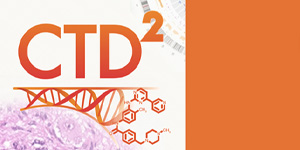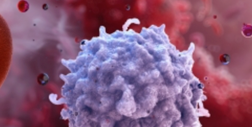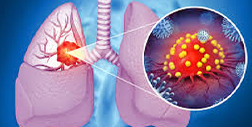NCI Events
Featured Event

Tumor-Draining Lymph Nodes: Gaps and Opportunities Forum Series
This initiative will convene a monthly virtual forum series bringing together leading experts in lymph node biology, immunology, and cancer—from experimental scientists and clinicians to computational and in silico modelers—in a dynamic, interdisciplinary environment.
Need an Event Site?

Upcoming Events
(Displaying 14 out of 14 results)February 2026

Global Cancer Research and Control Seminar Series
The NCI Center for Global Health’s Global Cancer Research and Control Seminar Series (GCRCSS) features talks by researchers and cancer control experts working in global oncology. The seminars provide opportunities for discussion and collaboration around impactful and innovative work that addresses cancer morbidity and mortality worldwide.

Tumor-Draining Lymph Nodes: Gaps and Opportunities Forum Series
This initiative will convene a monthly virtual forum series bringing together leading experts in lymph node biology, immunology, and cancer—from experimental scientists and clinicians to computational and in silico modelers—in a dynamic, interdisciplinary environment.

CCDI Webinar Series
Throughout the year, CCDI will host open Community Forums, which highlight CCDI progress and what’s on the horizon for the initiative. These forums cover CCDI programs, such as the Rare Pediatric Cancer Initiative and the CCDI Participant Index.

ODS Webinar Series
Webinar sessions focus on data sharing and usage topics including data event outcomes, data sharing and management policies, data sharing guidance, and data sharing processes, tools and resources.
Throughout the year, ODS will host speakers from the cancer research community, which highlight data sharing and usage in the community. If you have topic ideas please contact us at NCIOfficeofDataSharing@mail.nih.gov.

Consortium for Cancer Implementation Science Annual Meeting
The Consortium for Cancer Implementation Science (CCIS) annual meeting will be held in-person from February 25-27, 2026, in Philadelphia, Pennsylvania, hosted by the Abramson Cancer Center and the Perelman School of Medicine at the University of Pennsylvania. This year’s meeting will feature engaging panel presentations, collaborative action group meetings, and an insightful poster session, all centered on the theme of: Advancing Implementation Science Across the Cancer Continuum from Prevention to Survivorship.
March 2026

NCI Transition Career Development Workshop
To facilitate current NCI career development awardees and prospective applicants to become better acquainted with the elements involved in transitioning to research independence.

Cancer Target Discovery and Development (CTD²) Network Annual Meeting
During the Cancer Target Discovery and Development (CTD²) Network Virtual Symposium, CTD2 researchers will share functional genomics research that is bridging the gap between large-scale genomic datasets and the underlying etiology of cancer development, progression, and metastasis.

Immune Aging and Cancer Therapy Meeting
Host immunity has been successfully leveraged to improve cancer therapy outcomes but one’s immune function and resilience decrease with advancing age. This virtual workshop will focus on the impact of immune aging on cancer therapy and discuss opportunities and future directions in this area.

DCTD Workshop: Foundation Models for Cancer- Advancing Diagnosis, Prognosis, and Treatment Response
This virtual workshop, "Foundation Models for Cancer," will be held from March 24-26, 2026, between 10:00 AM and 2:00 PM EST. This workshop will explore how foundation models—a powerful class of advanced AI models —can transform cancer research and clinical care. We will focus on their potential to improve diagnosis, prognosis, and treatment response, with a strong emphasis on clinical translation and technology development.

I-SCORE: Investigators' and Site Coordinators' Opportunity for Research Excellence Meeting
he NCI Division of Cancer Prevention (DCP) develops, supports, and oversees clinical cancer prevention trials and promotes participation by all populations. The Early Phase Cancer Prevention Clinical Trials Program is designed to evaluate the safety and efficacy of promising new preventive agents, the utility of novel biomarkers, and the value of innovative technologies to identify premalignant lesions. The Cancer Prevention Clinical Trials Network (CP-CTNet) was created to facilitate the efficient implementation of these studies by teams of multidisciplinary investigators supported by NCI DCP. The purpose of the I-SCORE meeting is to stimulate information sharing and collaborations between DCP staff and CP-CTNet members including investigators, program staff and coordinators; and to develop strategies to enhance the cancer prevention research program both scientifically and operationally.
May 2026

SCLC Consortium Meeting
This hybrid meeting will host national and international experts in the dynamic field of SCLC research. It will cover the most recent developments in SCLC biology, models, tumor heterogeneity and plasticity, immunology and immunotherapy, new therapy targets, and treatment resistance. The sessions will aim to develop collaborative approaches to address key questions in the field and define promising scientific areas.
NCI Program Staff and patient advocates with an interest in SCLC are also invited guests. We hope this venue will enable data sharing with the intent to offer many new collaborative opportunities within the SCLC community.

26th Annual CCR Fellows and Young Investigators Colloquium
In 2026, we are celebrating the 26th Annual CCR Fellows and Young Investigators Colloquium, a two-day event held at the NCI Shady Grove Campus (9609 Medical Center Drive in Rockville, MD).
We are offering keynote addresses from research speakers, a survivorship speaker, the Outstanding Postdoctoral Fellow (OPF) awardee, and CCR leadership. Importantly, we highlight the research by CCR fellows, giving opportunities for oral and poster presentations. For career development, we host a variety of panels and workshops by experts from different fields. The Colloquium will be held on May 14–15, 2026, and is open to all NCI fellows and trainees.

Science-Based Non-Academic Careers
As fellows and staff scientists at the National Cancer Institute, many of you will be exploring and choosing from various science-based career options in the future. The Office of Training and Education (OTE) in the Center for Cancer Training (CCT) is hosting weekly workshops to help participants learn about the various career opportunities that lie outside of independent academic research. Given these may include unfamiliar roles outside of traditional bench science, we have guest speakers from various science-based backgrounds to provide information and insight that will help inform decisions about potential future endeavors. For details about the course schedule, invited speakers, and program contacts, please visit the SNAC website.
July 2026

Summer Omics Nursing Institute
The Summer Omics Nursing Institute will equip nurses with the knowledge, skills, and abilities to develop robust programs of research in symptom science that incorporate molecular omics. Participants will expand their understanding of molecular omic concepts and methods for application in research, teaching, and clinical practice, and will gain the ability to apply these approaches in biobehavioral research. The program will also examine strategies and emerging trends in omic-based therapies and molecular therapeutics, while building critical skills to evaluate the strengths, limitations, and appropriate applications of omic testing, including potential sources of inaccuracy when used in symptom science.
